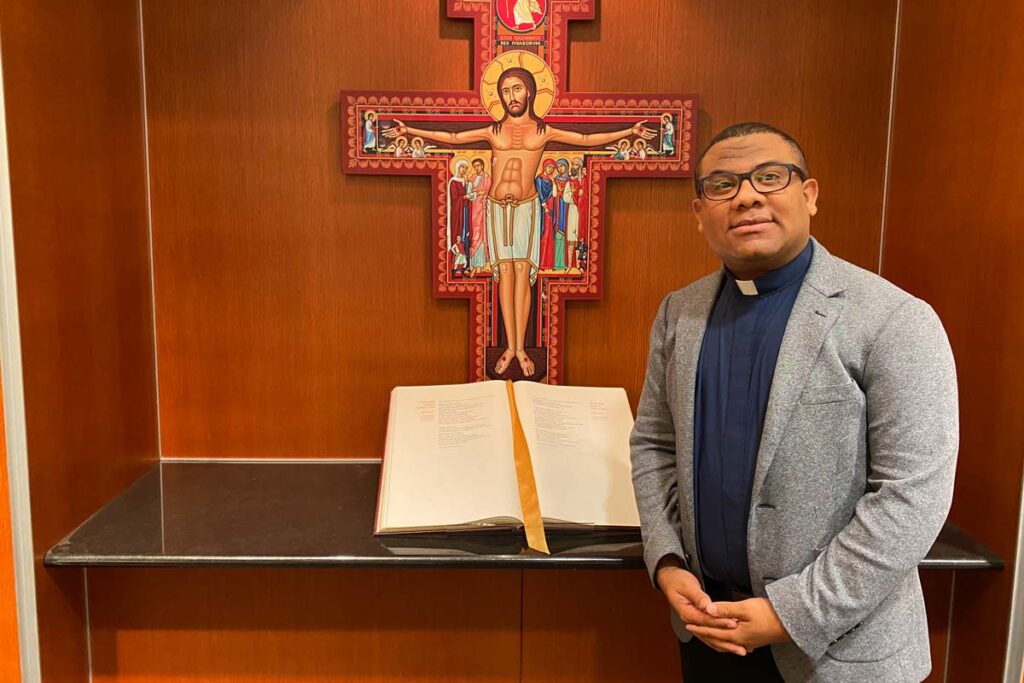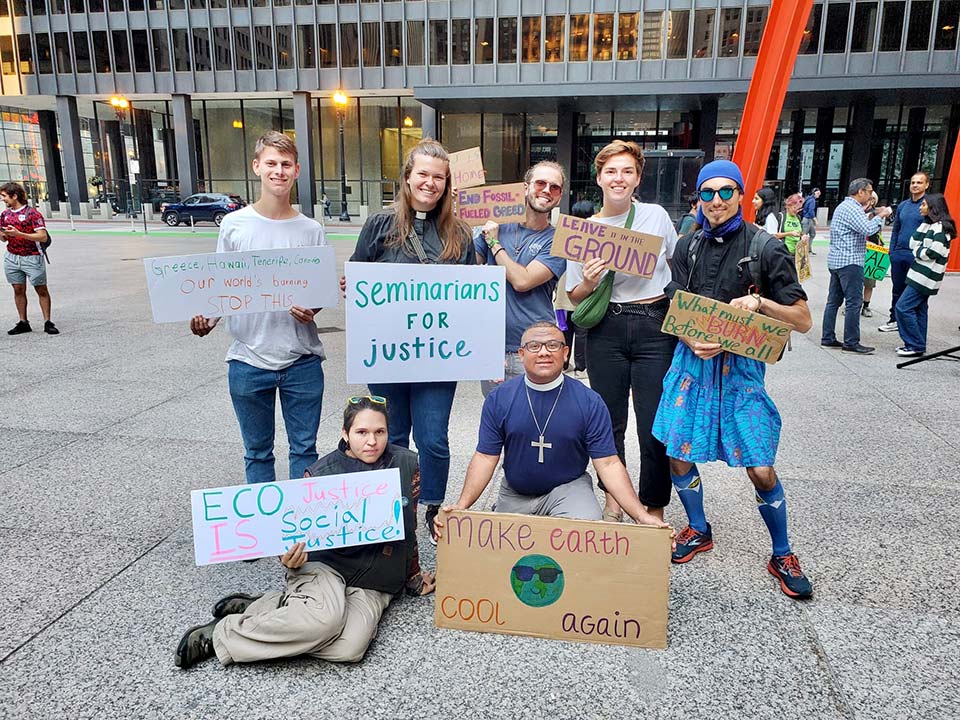Juan Manuel Perea on What It Means to be a Public Church Leader
By Lyndsay Monsen

Third-year MDiv student Juan Manuel Perea embodies what it means to be a public church leader: he is concerned with both the well-being of the church as well as the most pressing issues of the world today. Originally from Cuba, Perea says he understands his call to the ministry of Word and Sacrament to be a part of his baptismal vocation to serve God and neighbor in daily life.
Perea, with roots in both Latin America and the Caribbean, believes, “it is important to reclaim our cultural identity.” Perea sees this coming in the form of valuing Carribean traditions, languages, music, and art as integral aspects of Carribean spirituality. Afro-Caribbean spirituality has elements of African religions, Christianity, and syncretic practices, and he believes it is important to acknowledge this spiritual resilience and creative expressions of faith within the Caribbean context.
Perea also draws heavily from Latino-American Liberation Theology, a term originally coined by Peruvian philosopher, Catholic theologian, and Dominican priest Gustavo Guttierez. Liberation Theology emphasizes the liberation of the oppressed, especially the poor, which guides Perea’s ministry to God’s people.
Perea says Romans 6:1-11 challenges him to walk a faithful life. “Me being a public church leader has to be fulfilled in service to God and my neighbor,” he says. Perea takes seriously Jesus’ call to love one another—he says this includes people near and far, strangers and allies, enemies and friends, people of all races and genders as well as the LGBTQ+ community.

Perea says in his service as a public church leader he has “the responsibility to defend human rights and the common good, and work for freedom, justice, peace, environmental well-being, and good order in the public life.”
Perea quotes the Apostle’s Creed in saying he believes in a church that is “one, holy, catholic, and apostolic.” He envisions a church that embraces outcasts, those abandoned by the dominant white culture. He also hopes all people are seen as the image of God, and therefore honored, affirmed, and recognized.